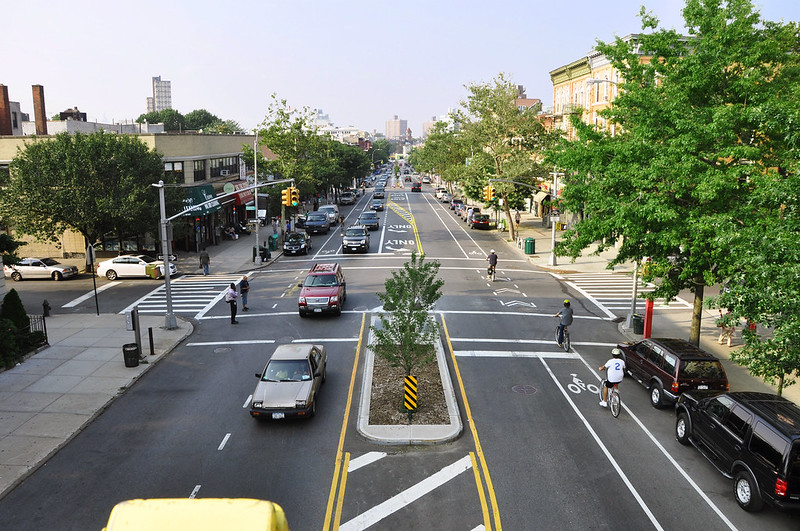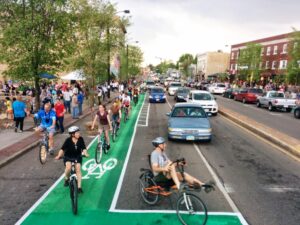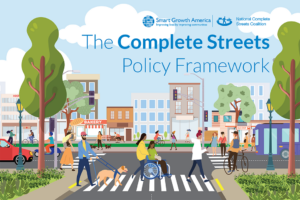The term “Complete Streets” was coined two decades ago, and while a lot of progress has been made, the fight for safe streets is far from over. To commemorate 20 years of the Complete Streets movement, we’ve rounded up some resources that can help you keep up the fight.

Barbara McCann, the current Senior Advisor to the Associate Administrator for Safety at the Federal Highway Administration (and the first Founding Director of the National Complete Streets Coalition) wrote a blog post to commemorate Complete Streets’ 20-year anniversary.
Thousands of planners, engineers, and others in government, consulting, and public interest groups have worked … to make safety for all users routine in policies and in practice. Now more than 1,700 Complete Streets policies are remaking transportation projects across the country.
—Barbara McCann
But we know this work is far from over. One of our three guiding principles at Transportation for America is safety over speed, a rule that we hope will guide decision makers to reduce the speed of vehicles and prioritize the safety of people walking and rolling to their essential destinations. And while some key safety programs passed in the 2021 infrastructure law, the federal spending bill left even more money available for the deadly status quo, which means we’ll need to keep advocating for safer streets at the local, state, and federal levels in the years ahead.
Our colleagues at the National Complete Streets Coalition (NCSC) are doing the same—and arming advocates with tools to join the movement. Take a look at some of their most recent resources.
1. Policy Action Guide
In partnership with CityHealth, NCSC produced this guide to equip planners and practitioners with practical resources for overcoming barriers and navigating the complexities of policy implementation. From building coalitions to crafting compelling narratives, it offers a comprehensive toolkit for effecting change at the state and local level. Access it here.
2. Complete Streets Story Map
Spread the word about the Complete Streets movement. Whether you’re a planner, engineer, advocate, or new to the smart growth space, the Complete Streets story map (produced in partnership with CityHealth) can serve as an interactive tool that breaks down what makes a Complete Street and why they’re important. The tool also features two case studies—Pittsburgh, PA and Milwaukee, WI—that demonstrate how these communities achieved their Complete Streets vision. Learn more here.
3. Policy Evaluation Tool
NCSC evaluates and scores Complete Streets policies across the country using their Policy Framework (updated just last year). Now, advocates and policymakers can do the same, using our free and open-source tool to evaluate existing or drafted local, MPO, or state-level Complete Streets policies. Use the tool.
There’s more to come
Smart Growth America will soon release a summary of their 2023 Complete Streets Leadership Academies, where they partnered with states and local communities to implement safe street design on state-owned roadways. Stay tuned to see what they learned from this year-long technical assistance project in communities across the country—and keep following us here for more opportunities to advance street safety where you live.
The post Celebrating 20 years of Complete Streets appeared first on Transportation For America.














